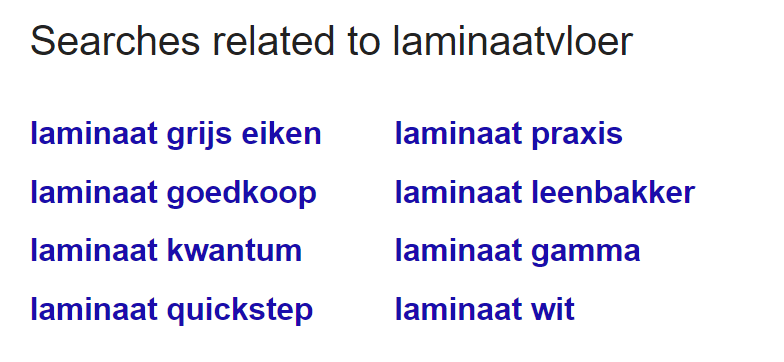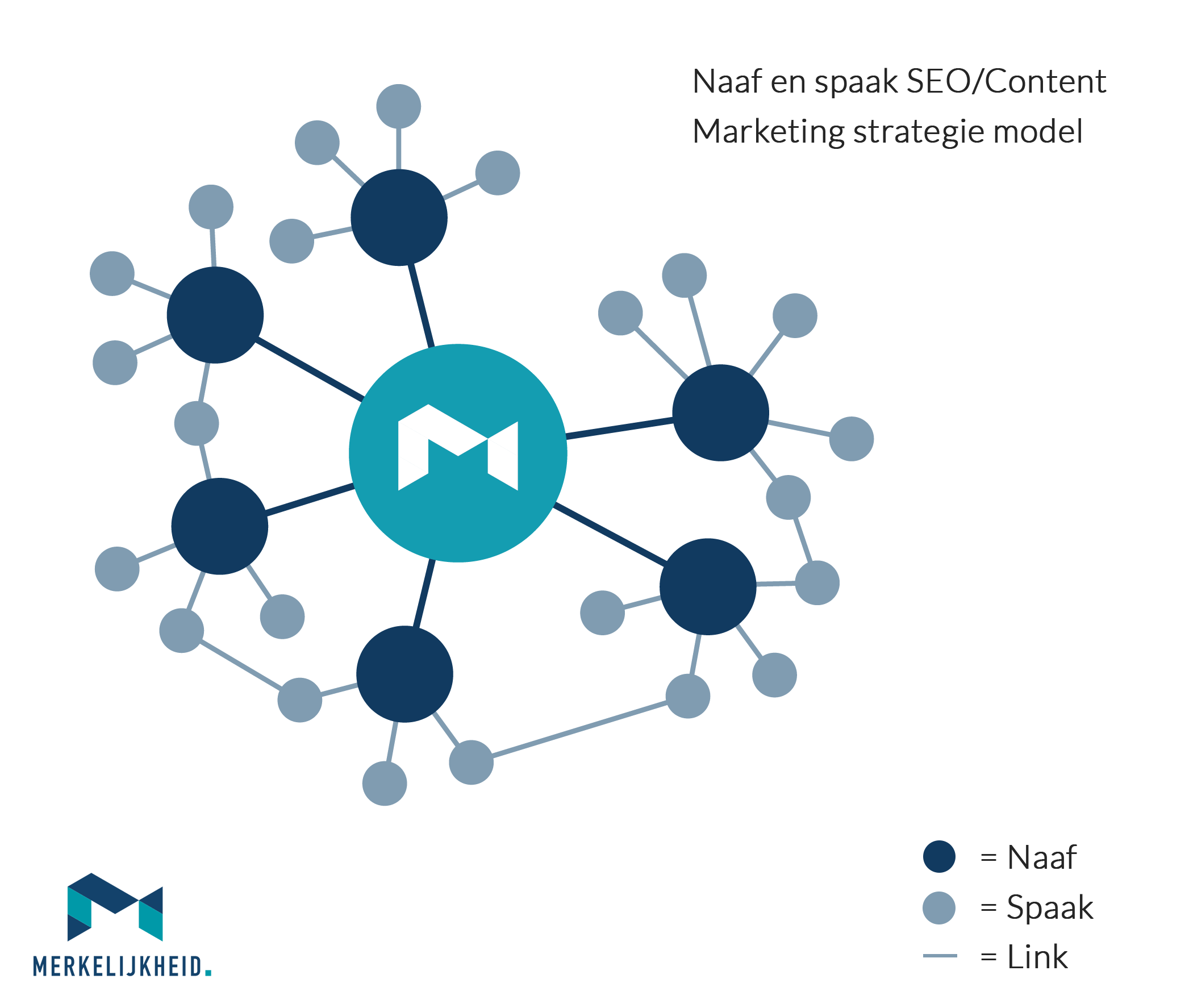SEO for Advanced Users: Hub and Spoke Content Marketing Strategy
Do you also feel like everyone has figured out that SEO trick by now and are you looking for a way to get your brand higher in the search results? The hub and spoke strategy is the answer you’re looking for.
More and more people understand SEO, but Google isn’t standing still either. Content marketing and SEO are coming closer together, and this strategy brings them together.
Why you shouldn’t read this article
Many companies haven’t yet picked the low-hanging fruit in SEO. And in many B2B markets, there’s still plenty of fruit to pick. If you’ve spent little time on SEO so far, you’d better read one of the following articles:
Great, you’re still here.
This article is an advanced SEO strategy and builds on your well-thought-out Content Marketing strategy. SEO and Content Marketing are actually no longer distinguishable, but I don’t need to explain that to you anymore.
The SEO trick is too well known
 Until recently, the recipe was simple: a good article with the keyword in the URL, title, some headings, a few times in the text, and as an alt tag on an image. Make sure your page authority is higher than the competition and chances are you ranked high on Google. Goal achieved. Rinse and repeat, as the English say.
Until recently, the recipe was simple: a good article with the keyword in the URL, title, some headings, a few times in the text, and as an alt tag on an image. Make sure your page authority is higher than the competition and chances are you ranked high on Google. Goal achieved. Rinse and repeat, as the English say.
That worked well for a while.
But more and more people know the trick. Competition increases and your lead keeps shrinking. You have to work harder for the same result.
Google is also getting smarter. Google now encourages searchers to ask increasingly complex questions instead of just two keywords. The search term “implement positioning” is increasingly “implement positioning at a medium-sized business service provider.” A more specific query should lead to a better search result: the user finds what they’re looking for faster.
Google therefore adjusts its algorithm. The Netherlands’ largest search engine assigns more authority to domains rather than pages. The reasoning is that a site that is well read on ‘positioning strategy’ or ‘brand strategy and positioning’ probably also has something meaningful to say about ‘implement positioning.’
And we can capitalize on that.
The hub and spoke strategy: SEO and content marketing combined
A wooden wheel has been made the same way for centuries: a wooden hub in the center with spokes radiating outward supporting the rim.
The SEO/Content strategy is essentially the same. At the center is a (very) comprehensive but at the same time less in-depth article, the hub. In addition, there is a whole series of articles with more in-depth content that ‘rest’ on the hub, the spokes. Together they support the rim, which symbolizes the overall authority or traction.
Sounds complex, let’s make this practical.
Example of the hub and spoke SEO/Content Marketing strategy
 Hub: Everything about laminate flooring
Hub: Everything about laminate flooring
Spokes
- The importance of the underlayment for laminate floors
- Underfloor heating, how does it work with laminate floors?
- The different types of laminate floors and their pros and cons
- What determines the cost of a laminate floor
- How to install laminate flooring
The comprehensive hub article touches on all aspects of ‘laminate flooring,’ the main keyword, but doesn’t go too deep. Instead, it refers to the spokes, where that information is shared. The spokes themselves link back to the hub article.

Google’s suggestions, a fantastic source of inspiration for spokes
In this case, Google sees that five pages only link to one page, causing the search engine to conclude that this is the ‘main’ article. Result: the highest authority and hopefully the highest position in the search results.
The spokes are mainly aimed at attracting specific, long-tail search queries. The authority they gather is passed on to the hub.
SEO website architecture / structure
This suddenly makes the structure of your website quite clear. You probably already have a list of important keywords, those are your hubs.

Certain spokes relate to two hubs. To stay with flooring, the article ‘The differences between laminate and parquet’ relates to both the laminate floor and parquet hubs.
Hierarchy as a guideline for content marketing

A peek behind the scenes: hub and spoke structure applied to our own blog
Finally, another important advantage of the hub and spoke strategy is that it provides a good guideline for creating content. You generate new content ideas more easily because the structure of your site becomes simpler. Where you previously had a huge list of keywords and corresponding articles or URLs, these are now clustered by main topic.
This makes it easier to discover gaps in your offering. Then it’s easier to come up with an idea for an article, video, or infographic.
Merkelijkheid is increasingly adopting this strategy as well. We look forward to more structure, and the more ‘holistic’ approach fits with how we view establishing expertise. Like people, Google is increasingly looking for a domain expert, and we see that as a positive development.
We’d love to hear via the contact page or on social media what you think about the Hub and Spoke SEO/Content Marketing strategy and whether it fits with your own online marketing experiences.
